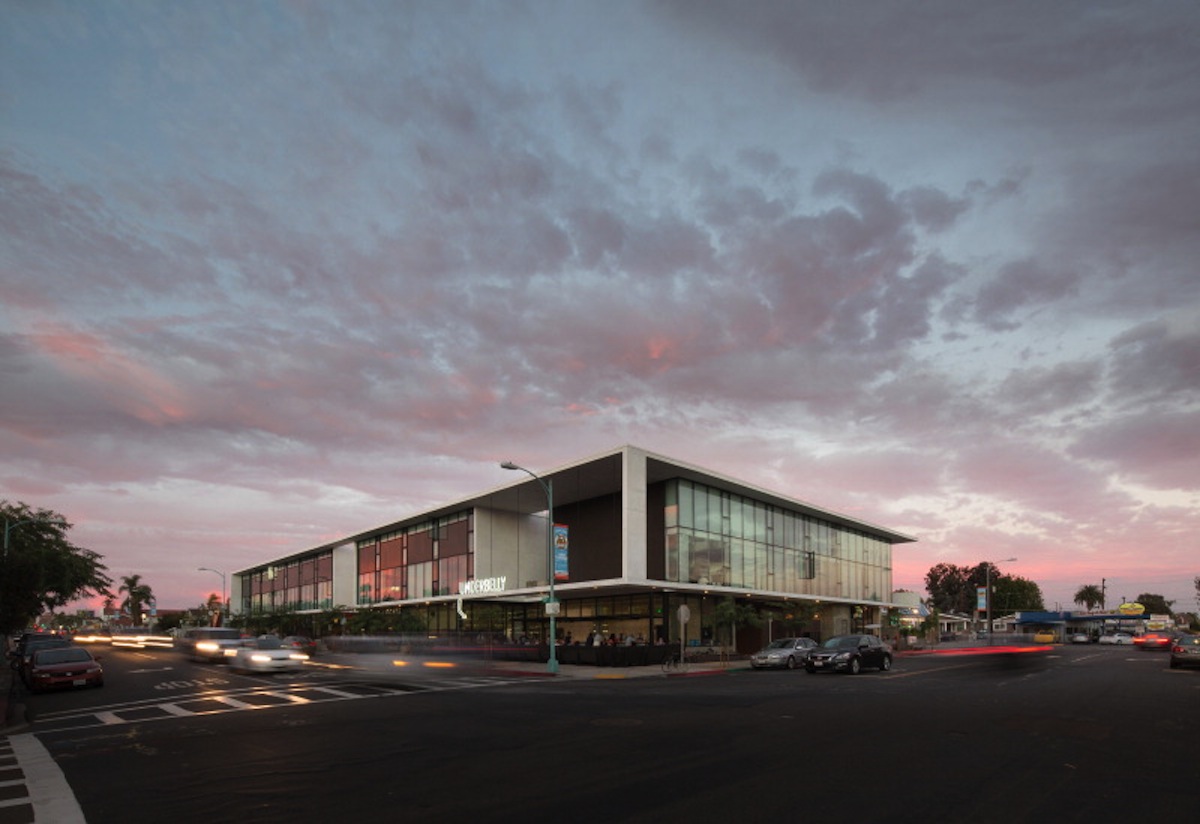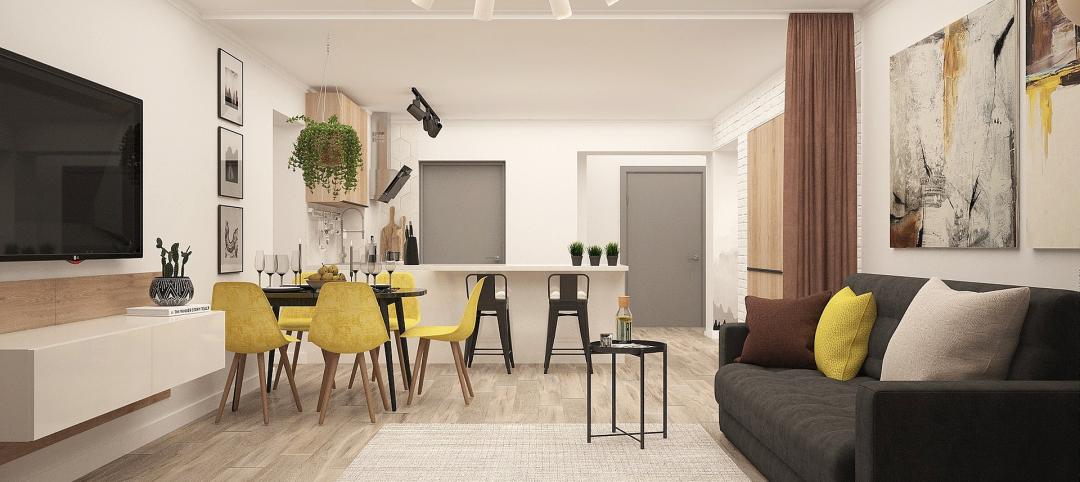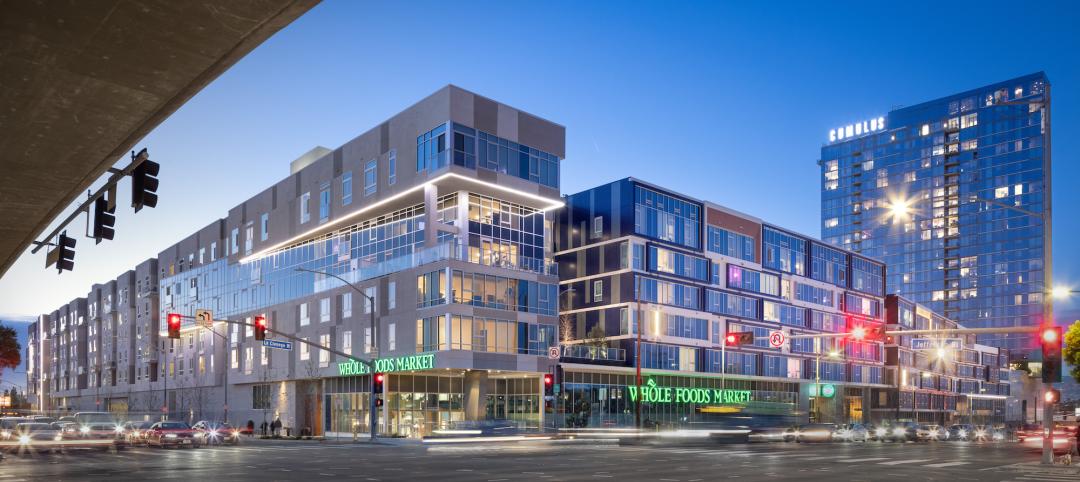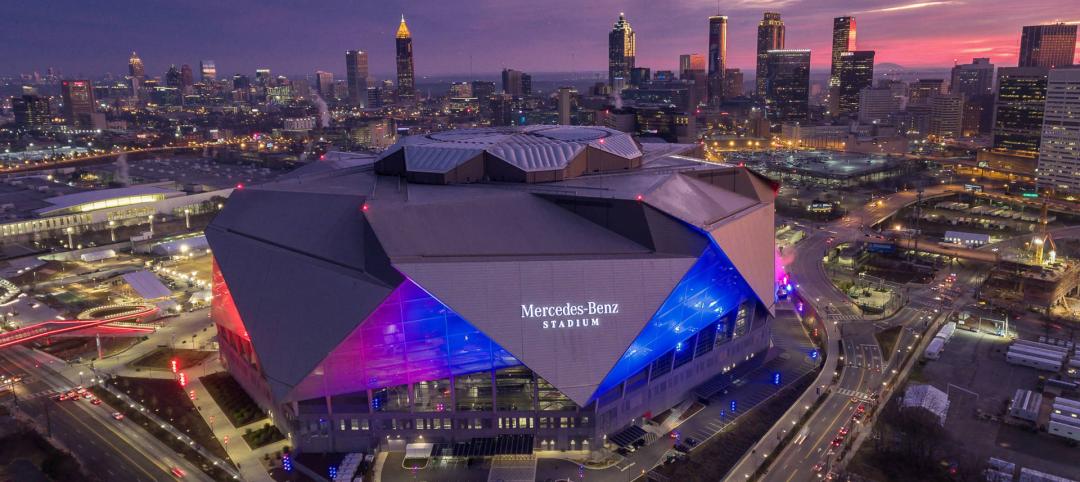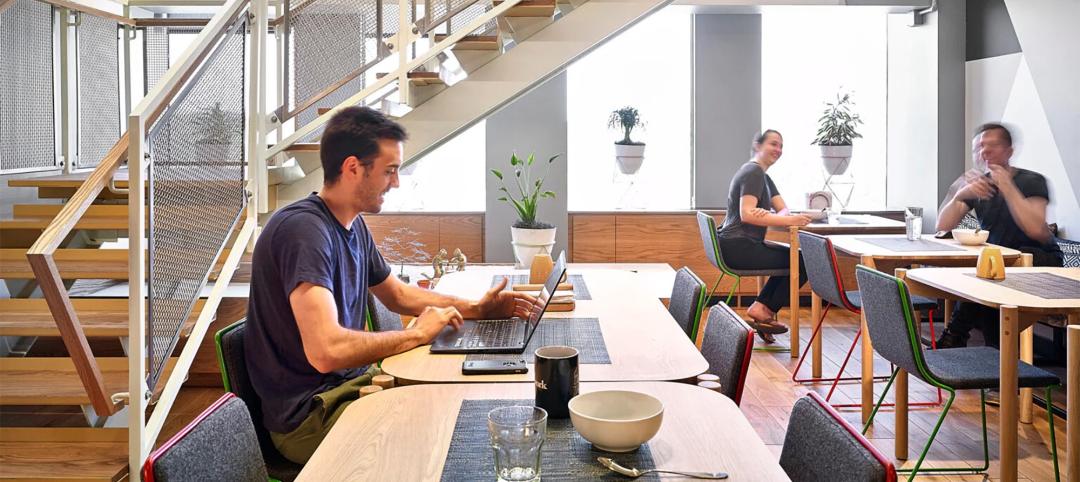The American Institute of Architects (AIA) selected the winners of its 2015 Housing Awards. The competition honored 10 projects across the country, including three affordable projects in the Multifamily Housing category.
The Multifamily Housing award recognizes outstanding apartment and condominium design. Aside from the architectural design features, the jury chose buildings based on context, transportation options, and features that contirubte to livable communities.
The three multifamily winners are:
Bayview Hill Gardensm, San Francisco
David Baker Architects
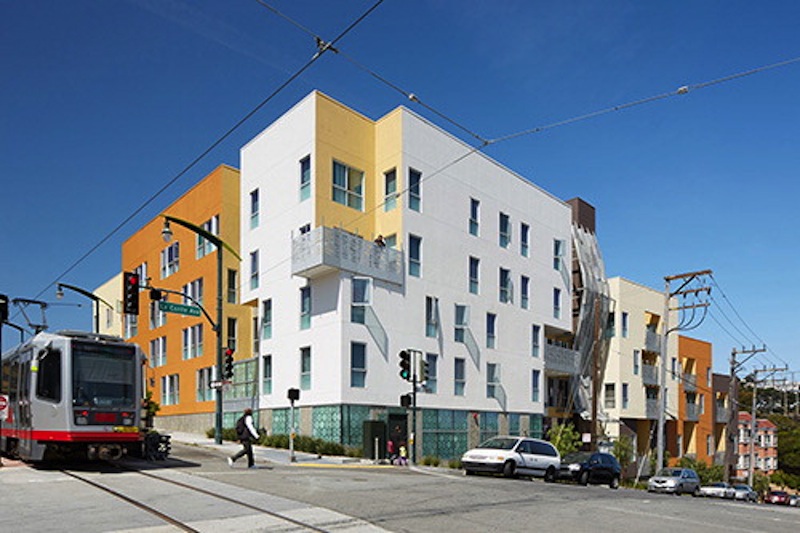 Image: Bruce Damonte and Matt Edge
Image: Bruce Damonte and Matt Edge
After years in the development pipeline, this bright new building now replaces a crime-ridden site with safe and stable homes. This is the only building dedicated to formerly homeless families in its neighborhood, which has the second highest homelessness rate in the city. Its opening moved many families off waiting lists for overtaxed shelters and has reduced pressure on emergency services.
The new secure building brings 73 homes, positive energy, and "eyes on the street" to the neighborhood. Formerly homeless families and transition-aged youth are provided stable new homes with "welcome kits" of furnishings and supplies. A comprehensive range of support services, including child-specific programs are offered in the building's convenient on-site offices. The 115 kids living in the building receive healthy snacks, homework help, after-school care, and chaperoned field trips.
In the central courtyard, 8,500-square-foot urban garden with fruit trees, vines, and planting beds allows residents to grow their own food and get their hands dirty. Varied-height planters accommodate people's differing relationships to the gardening beds - for adults, teens, children, and those with mobility differences - as well as providing places to rest or socialize in the garden court. A local gardening non-profit oversees this "edible landscape," with residents providing the daily garden care.
By providing increased safety and increased housing capacity and density as well as on-site social and vocational services for residents, the development supports residents and fosters the cultural and economic diversity of the neighborhood.
David Baker, FAIA, was the associate architect, interior designer was David Baker Architects, and OLMM Consulting Engineers served as the structural engineer on the project.
Broadway Affordable Housing, Santa Monica, Calif.
Kevin Daly Architects
 Image: Iwan Baan
Image: Iwan Baan
The objective of Broadway Housing is to provide low-income families with affordable housing that is both environmentally and economically sustainable in an urban area with a serious lack of available affordable housing options.
The primary population served by this project is low-income families earning between 30% and 60% of Area Median Income. The property consists of 2- and 3-bedrom units with rents ranging from about $560 to $1,300 per month. A market study was conducted to demonstrate the need for these units in the city. The market study determined that there was a need for 7,931 2-bedroom units serving this income range and 6,725 3-bedroom units within the west side of Los Angeles.
The property's convenient regional and local access and proximity to services make the subject site particularly attractive for the construction of affordable apartments. The complex offers residents two community rooms run by the Boys & Girls Club, computer room, laundry facility, open areas with landscaping and fruit trees, a picnic area, and an on-site manager.
Associate architects on the project were Tom Perkins, Kody Kellogg, Jason Pytko, Gretchen Stoecker, and JAred Ward. TK1SC was the mechanical engineer and John Labib & Associates was the structural engineer.
The North Parker, San Diego
Jonathan Segal, FAIA
 Image: Matthew Segal
Image: Matthew Segal
The North Parker project is now the southern gateway to the newest transitioning neighborhood in San Diego. The corner of 30th Street and Upas Street, previously blighted with decaying structures and a propensity towards vagrants, is now a community gathering point.
The affordable housing project houses 27 units on the floor above the ground plane and four commercial spaces, which consist of two restaurants, a beer-tasting bar, and an architectural office all engaging and interacting with each other. The street level façade recedes into the property, forming outdoor community gathering and interaction spaces serving the retail, thus opening the property completely to the community.
As you move through the project, a true sense of pedestrian-scale and community interaction is evident, as you notice the garden courtyard, private decks, and circulation paths interwoven through the project. There are no gates or boundaries. There are no double-loaded corridors.
The public and constant pedestrian flow secures the property naturally. Public people can move freely throughout the entire property, only limited by low physical boundaries when approaching the individual units. Multiple entrances through different nodes of the project allow you to transfer between the commercial ground plane along the street, to the interior garden and courtyard space and then up the stairs to the second level residential circulation path.
Tenants enter their units through semi-private exterior patios raised two feet above the adjacent public walkway. These raised patios allow for a sense of privacy while maintaining visual connection to the central court, further enhancing the sense of community. Upon entering your private space, you are allowed an unobstructed visual connection all the way through the unit with floor-to-ceiling glazing the full width of the unit peeking straight into the urban public landscape.
DCI Engineers served as the project's structural engineer and SeaBright Company was the civil engineer.
To read the full list of winners from the 15th annual AIA Housing Awards, click here.
Related Stories
Adaptive Reuse | Jul 10, 2023
California updates building code for adaptive reuse of office, retail structures for housing
The California Building Standards Commission recently voted to make it easier to convert commercial properties to residential use. The commission adopted provisions of the International Existing Building Code (IEBC) that allow developers more flexibility for adaptive reuse of retail and office structures.
Mixed-Use | Jun 29, 2023
Massive work-live-play development opens in LA's new Cumulus District
VOX at Cumulus, a 14-acre work-live-play development in Los Angeles, offers 910 housing units and 100,000 sf of retail space anchored by a Whole Foods outlet. VOX, one of the largest mixed-use communities to open in the Los Angeles area, features apartments and townhomes with more than one dozen floorplans.
Multifamily Housing | Jun 29, 2023
5 ways to rethink the future of multifamily development and design
The Gensler Research Institute’s investigation into the residential experience indicates a need for fresh perspectives on residential design and development, challenging norms, and raising the bar.
Office Buildings | Jun 28, 2023
When office-to-residential conversion works
The cost and design challenges involved with office-to-residential conversions can be daunting; designers need to devise creative uses to fully utilize the space.
Multifamily Housing | Jun 28, 2023
Sutton Tower, an 80-story multifamily development, completes construction in Manhattan’s Midtown East
In Manhattan’s Midtown East, the construction of Sutton Tower, an 80-story residential building, has been completed. Located in the Sutton Place neighborhood, the tower offers 120 for-sale residences, with the first move-ins scheduled for this summer. The project was designed by Thomas Juul-Hansen and developed by Gamma Real Estate and JVP Management. Lendlease, the general contractor, started construction in 2018.
Affordable Housing | Jun 27, 2023
Racial bias concerns prompt lawmakers to ask HUD to ban biometric surveillance, including facial recognition
Two members of the U.S. House of Representative have asked the Department of Housing and Urban Development to end the use of biometric technology, including facial recognition, for surveillance purposes in public housing.
Apartments | Jun 27, 2023
Average U.S. apartment rent reached all-time high in May, at $1,716
Multifamily rents continued to increase through the first half of 2023, despite challenges for the sector and continuing economic uncertainty. But job growth has remained robust and new households keep forming, creating apartment demand and ongoing rent growth. The average U.S. apartment rent reached an all-time high of $1,716 in May.
Apartments | Jun 27, 2023
Dallas high-rise multifamily tower is first in state to receive WELL Gold certification
HALL Arts Residences, 28-story luxury residential high-rise in the Dallas Arts District, recently became the first high-rise multifamily tower in Texas to receive WELL Gold Certification, a designation issued by the International WELL Building Institute. The HKS-designed condominium tower was designed with numerous wellness details.
Multifamily Housing | Jun 19, 2023
Adaptive reuse: 5 benefits of office-to-residential conversions
FitzGerald completed renovations on Millennium on LaSalle, a 14-story building in the heart of Chicago’s Loop. Originally built in 1902, the former office building now comprises 211 apartment units and marks LaSalle Street’s first complete office-to-residential conversion.


